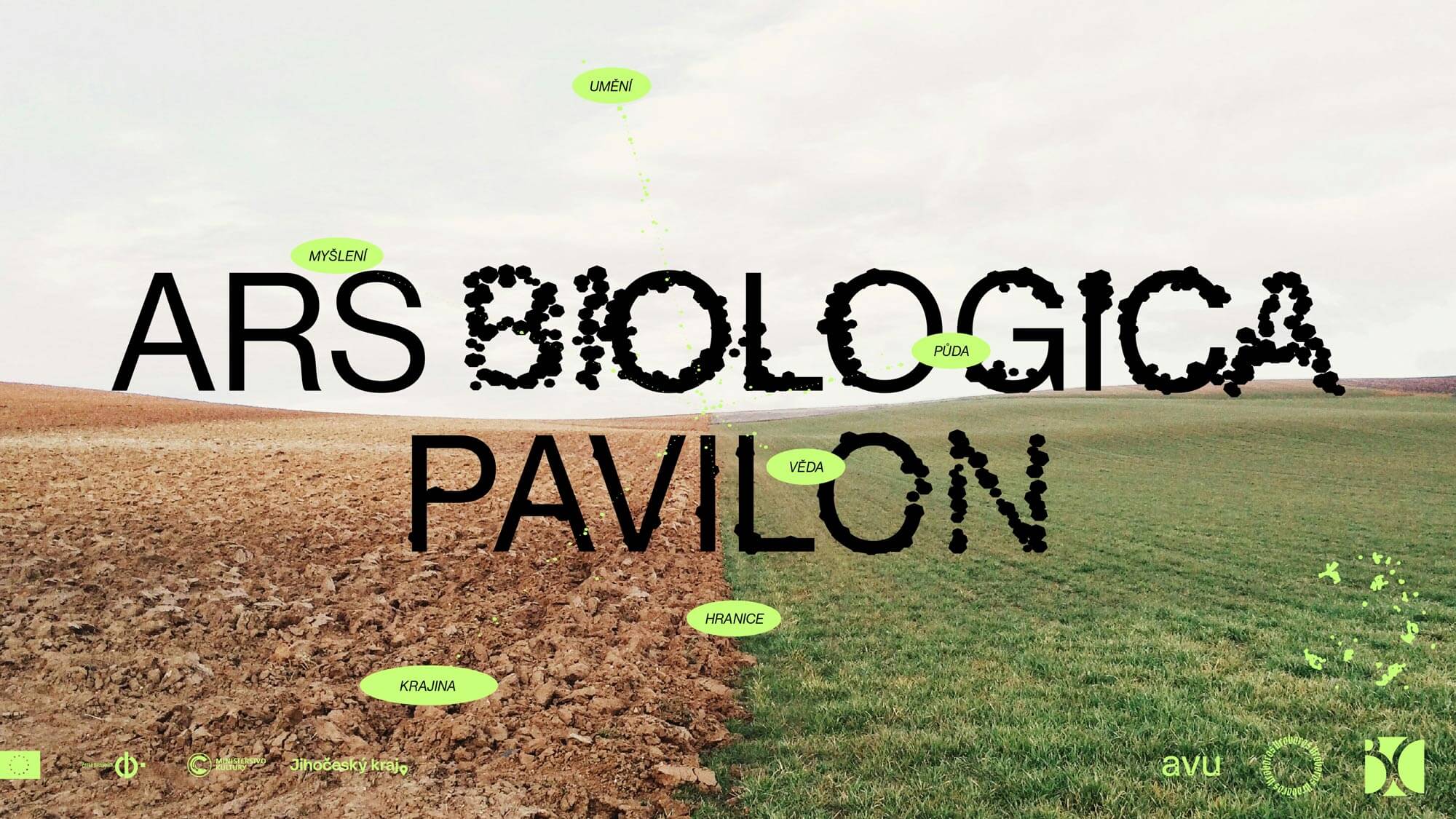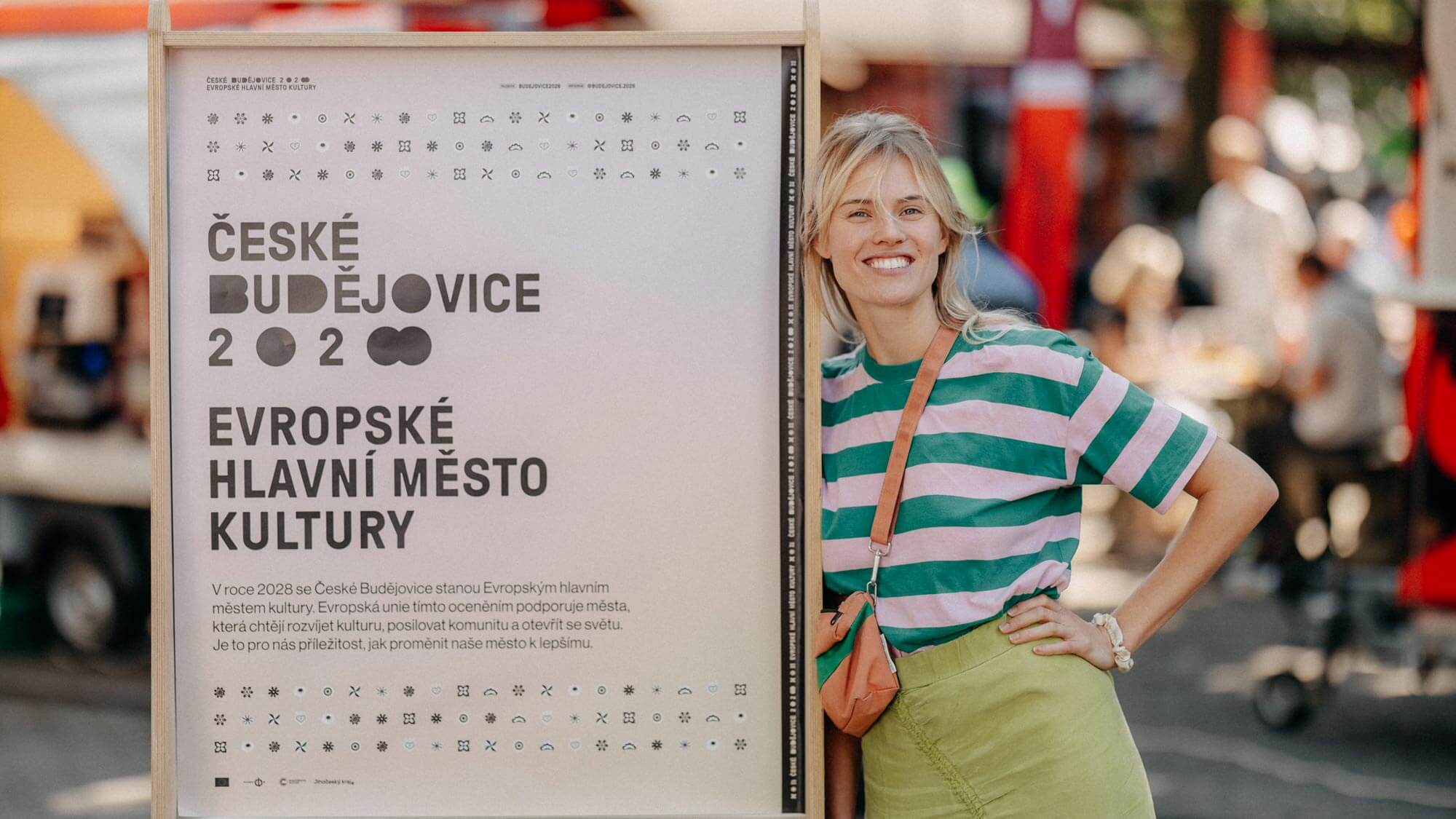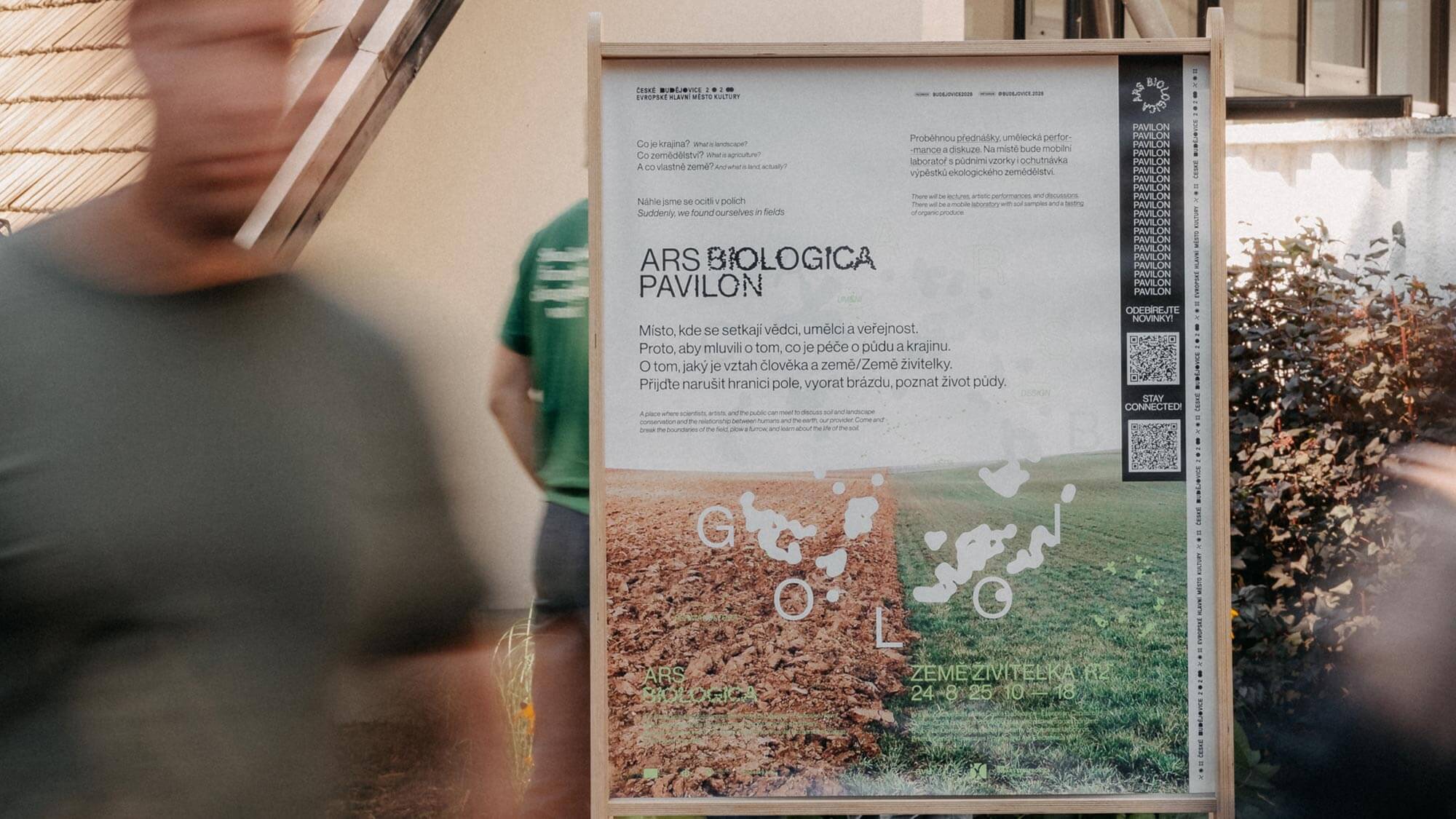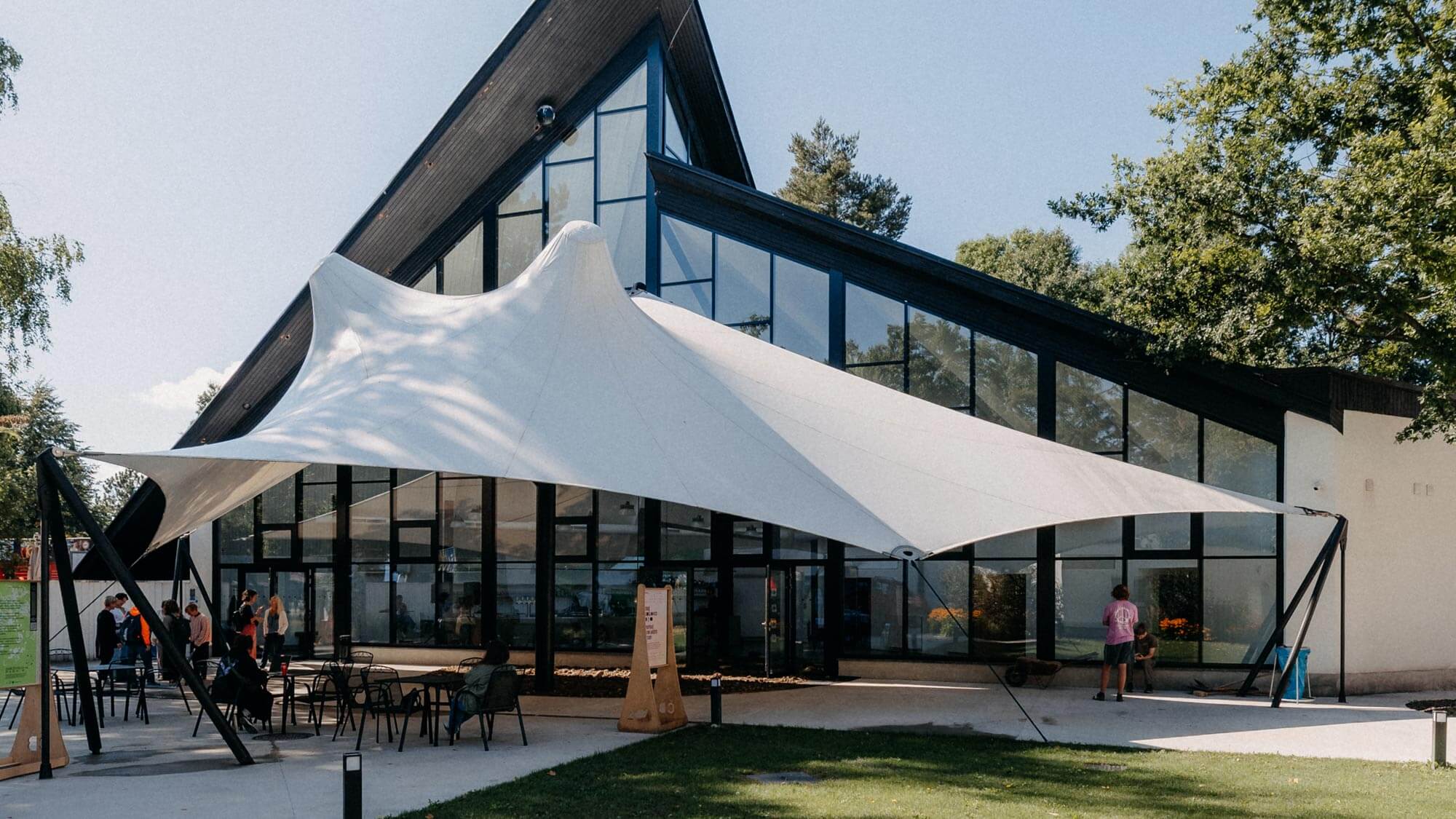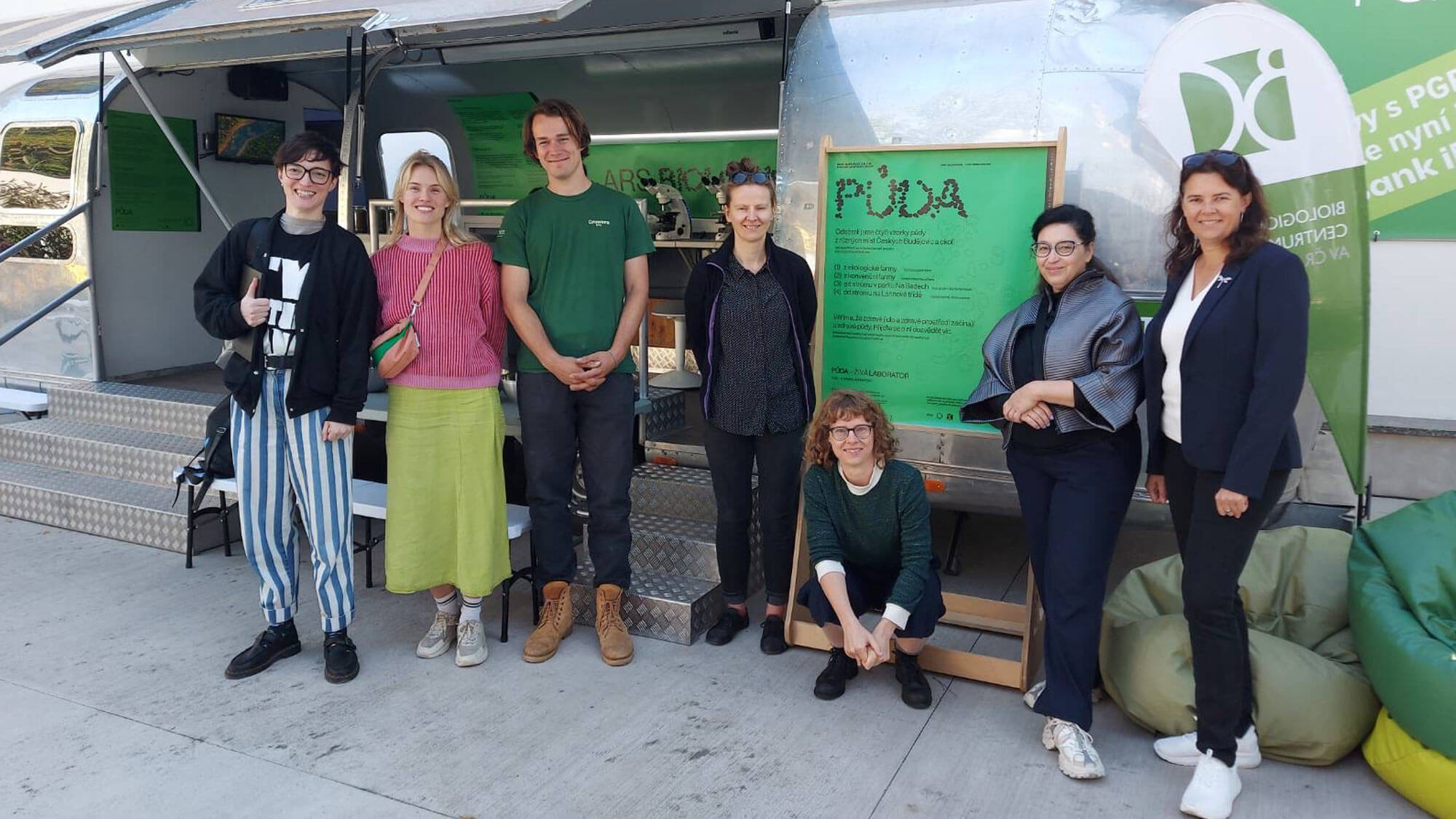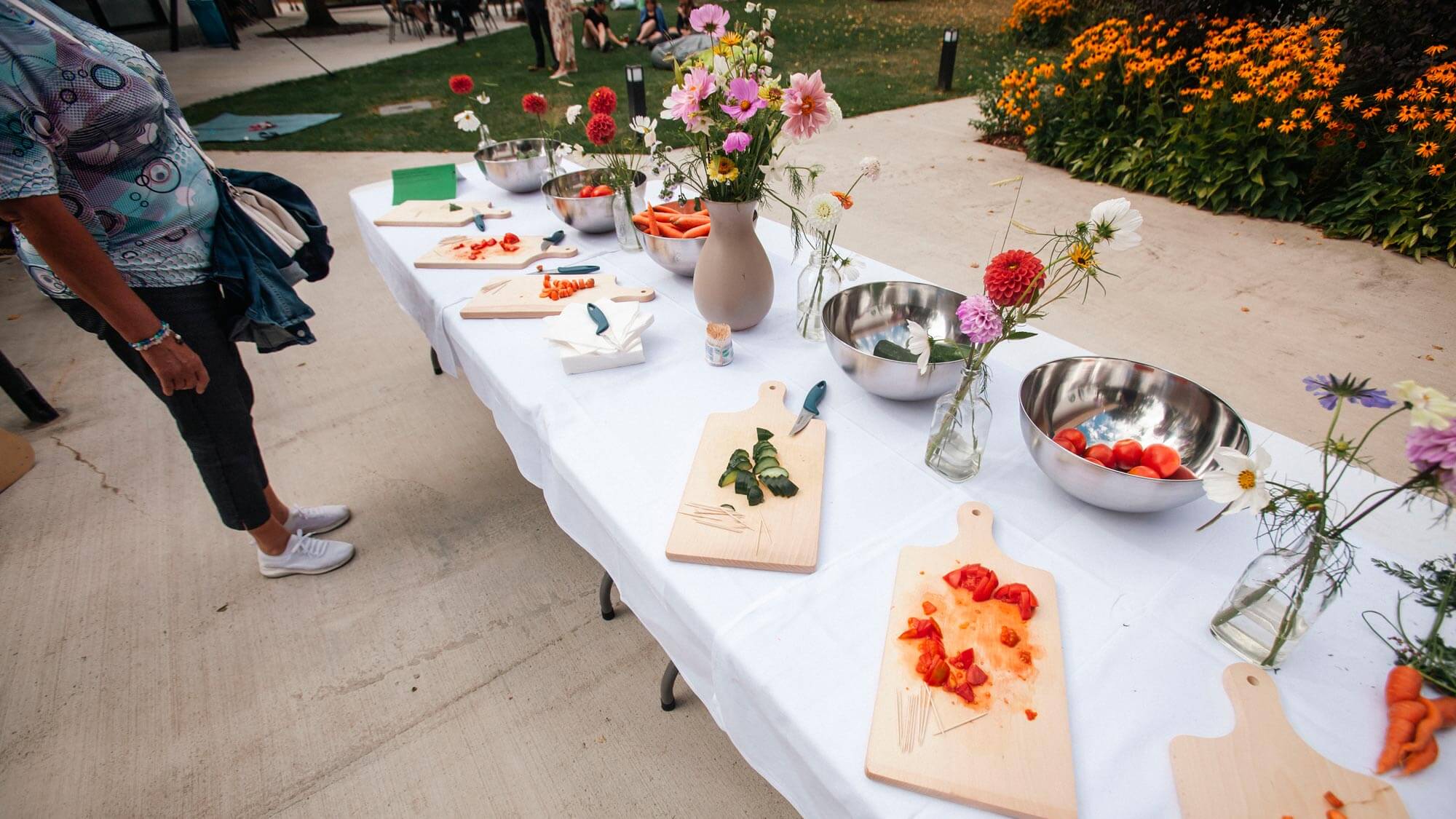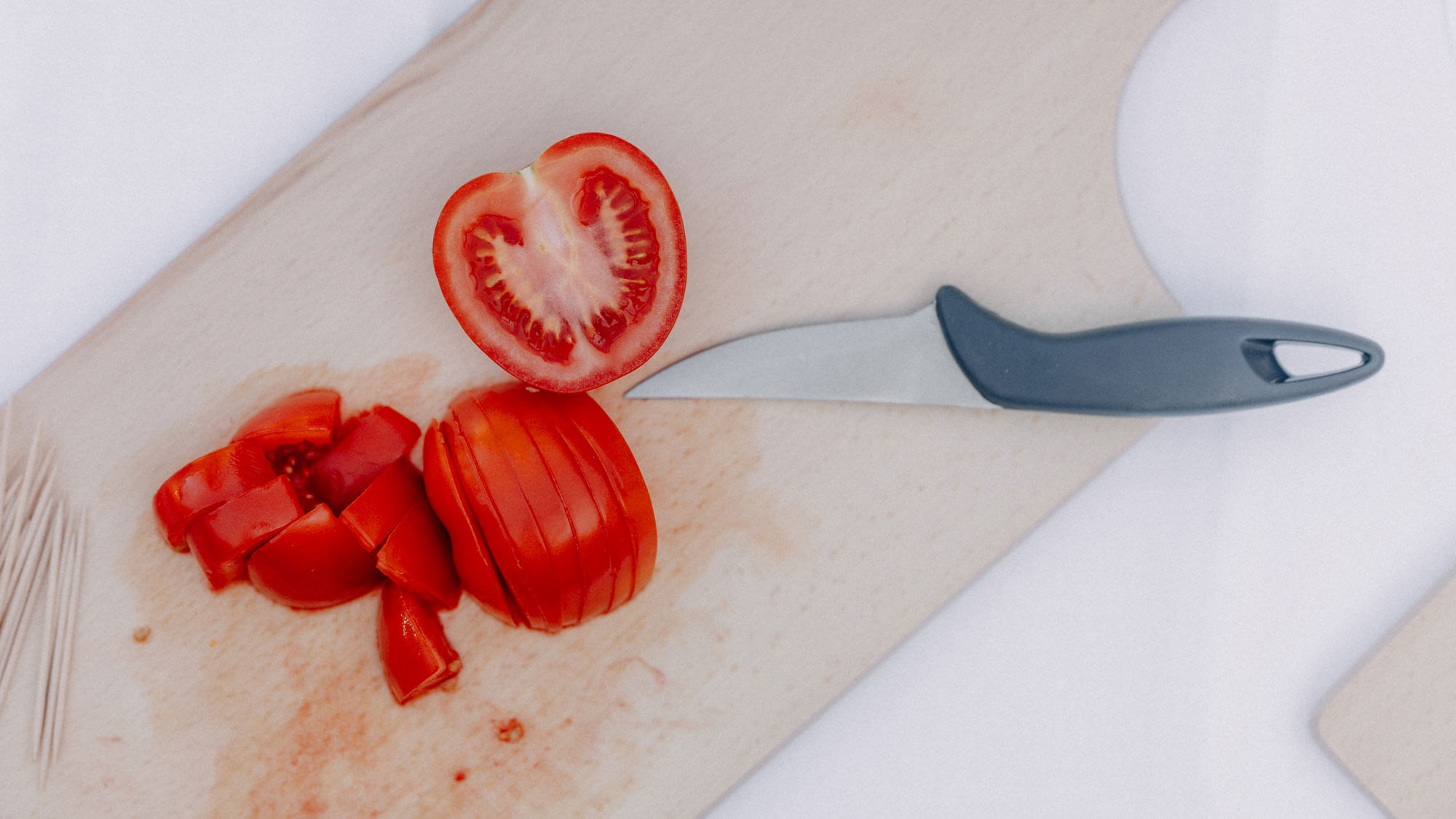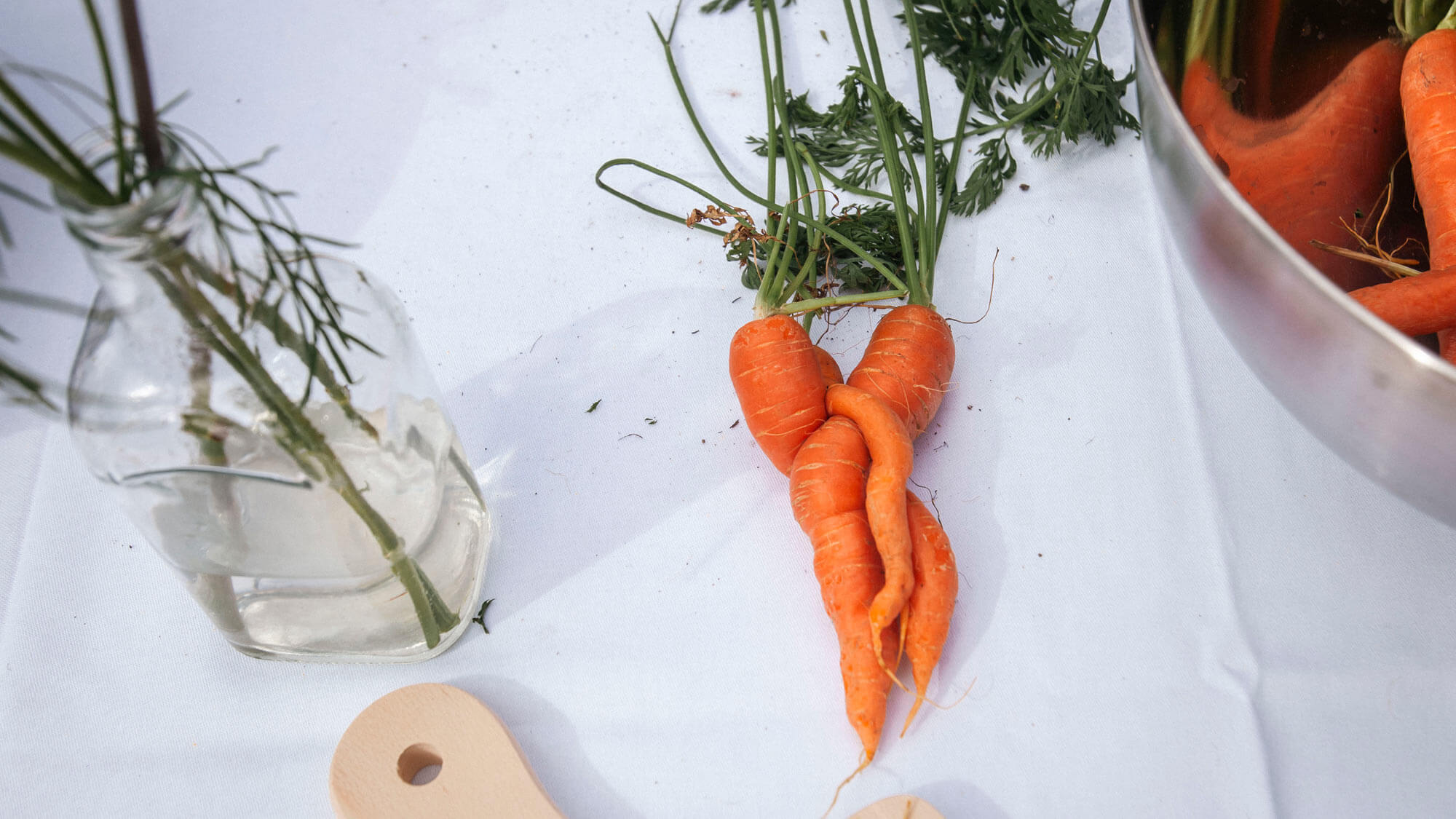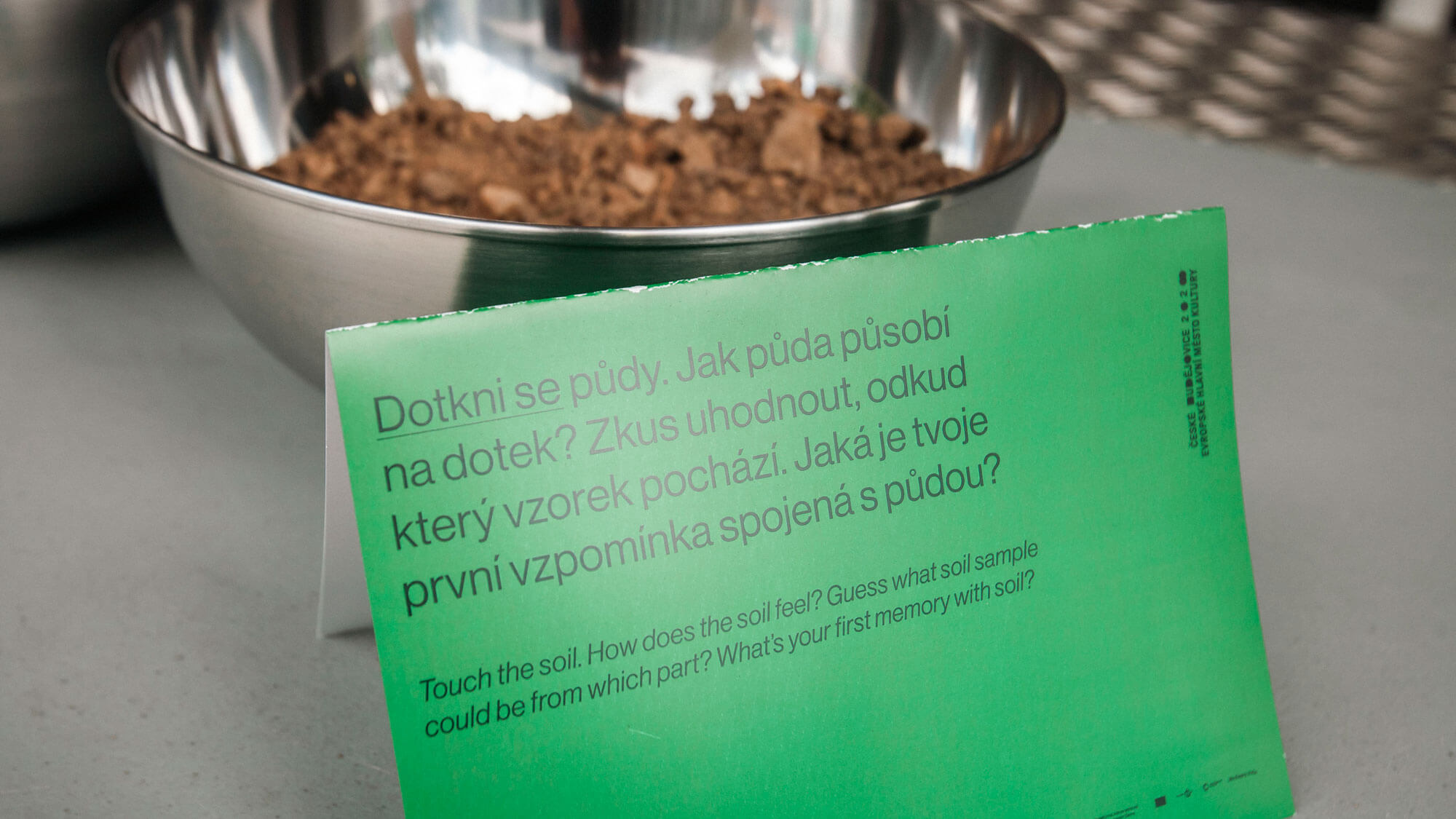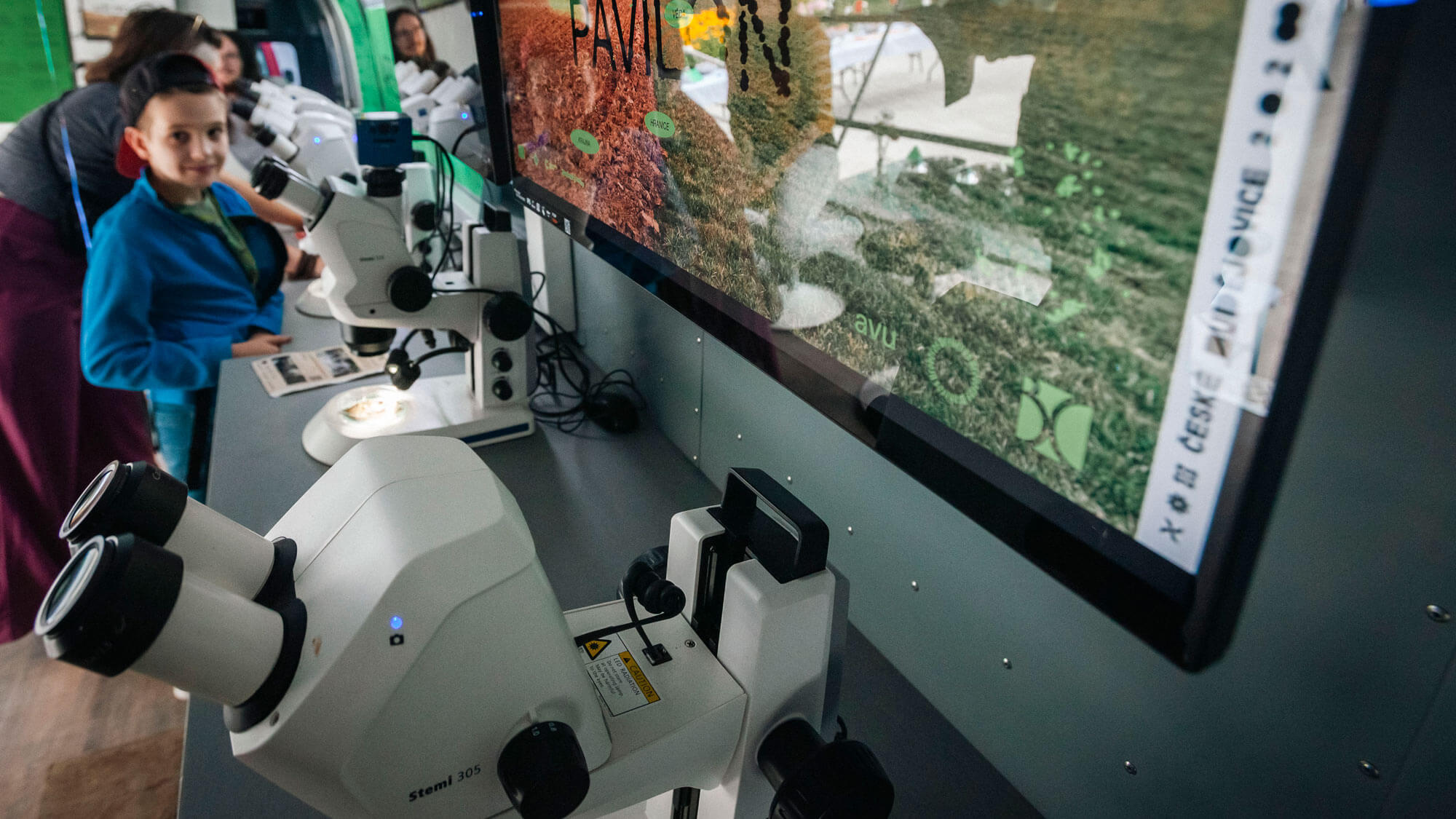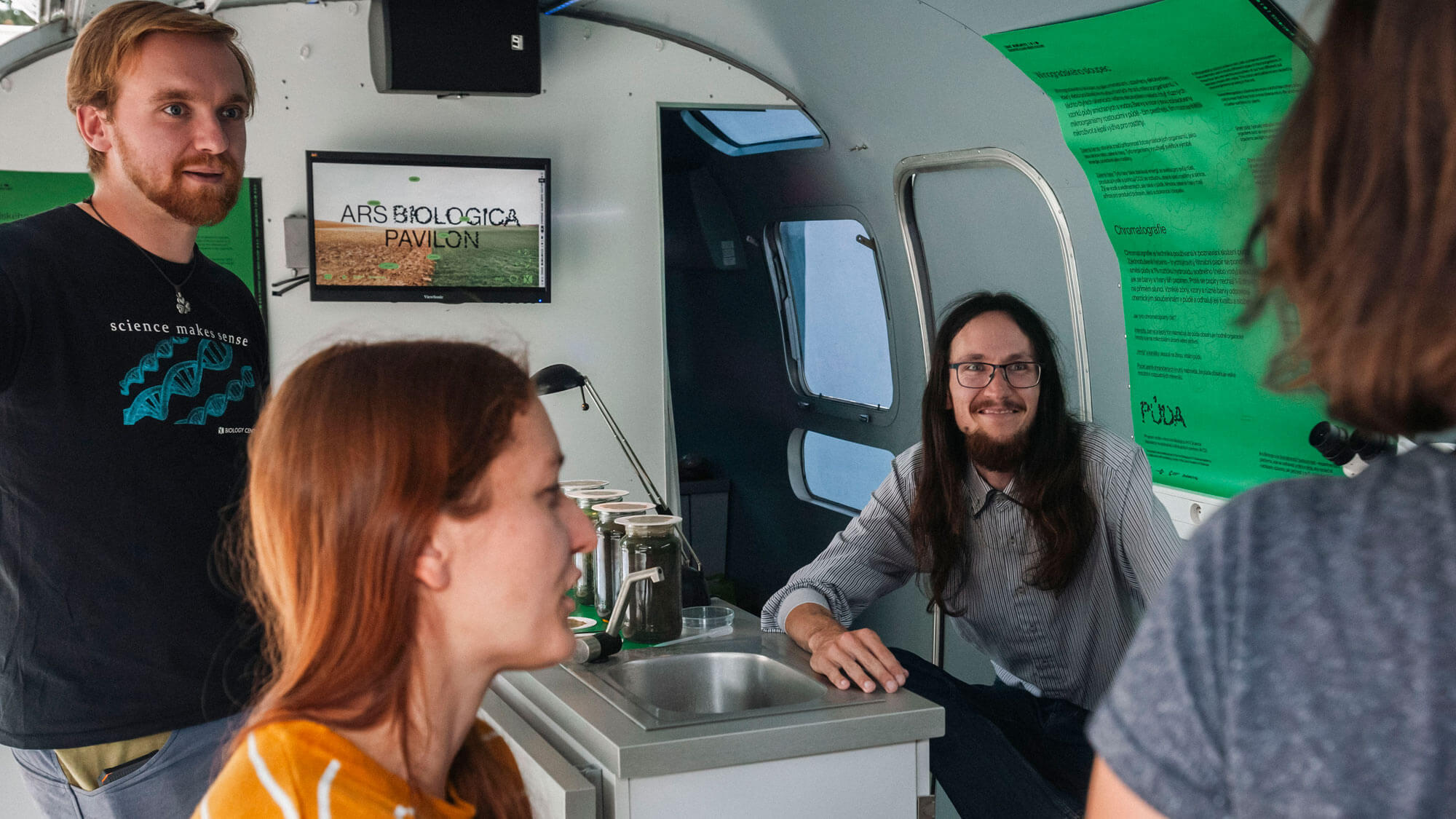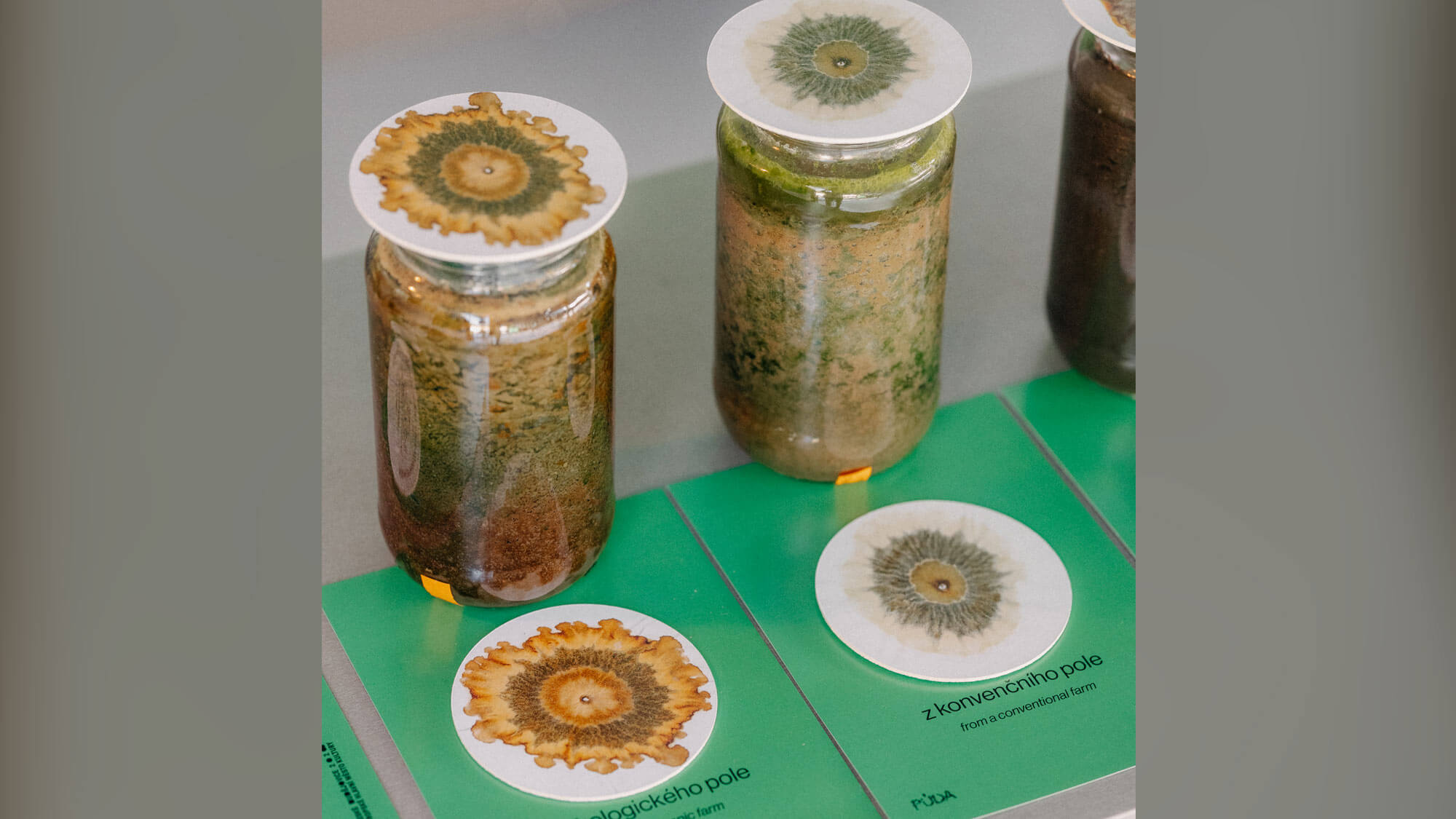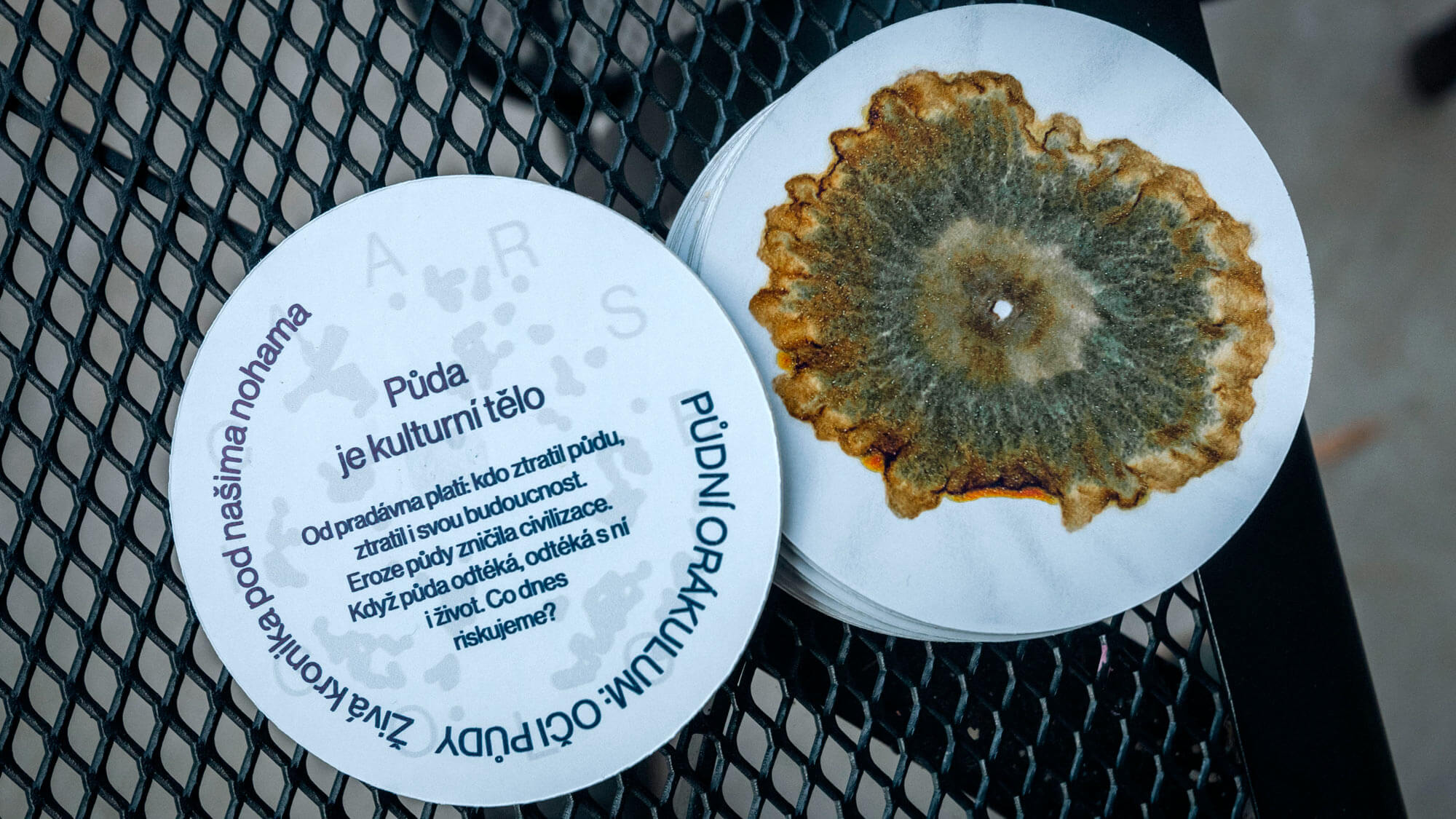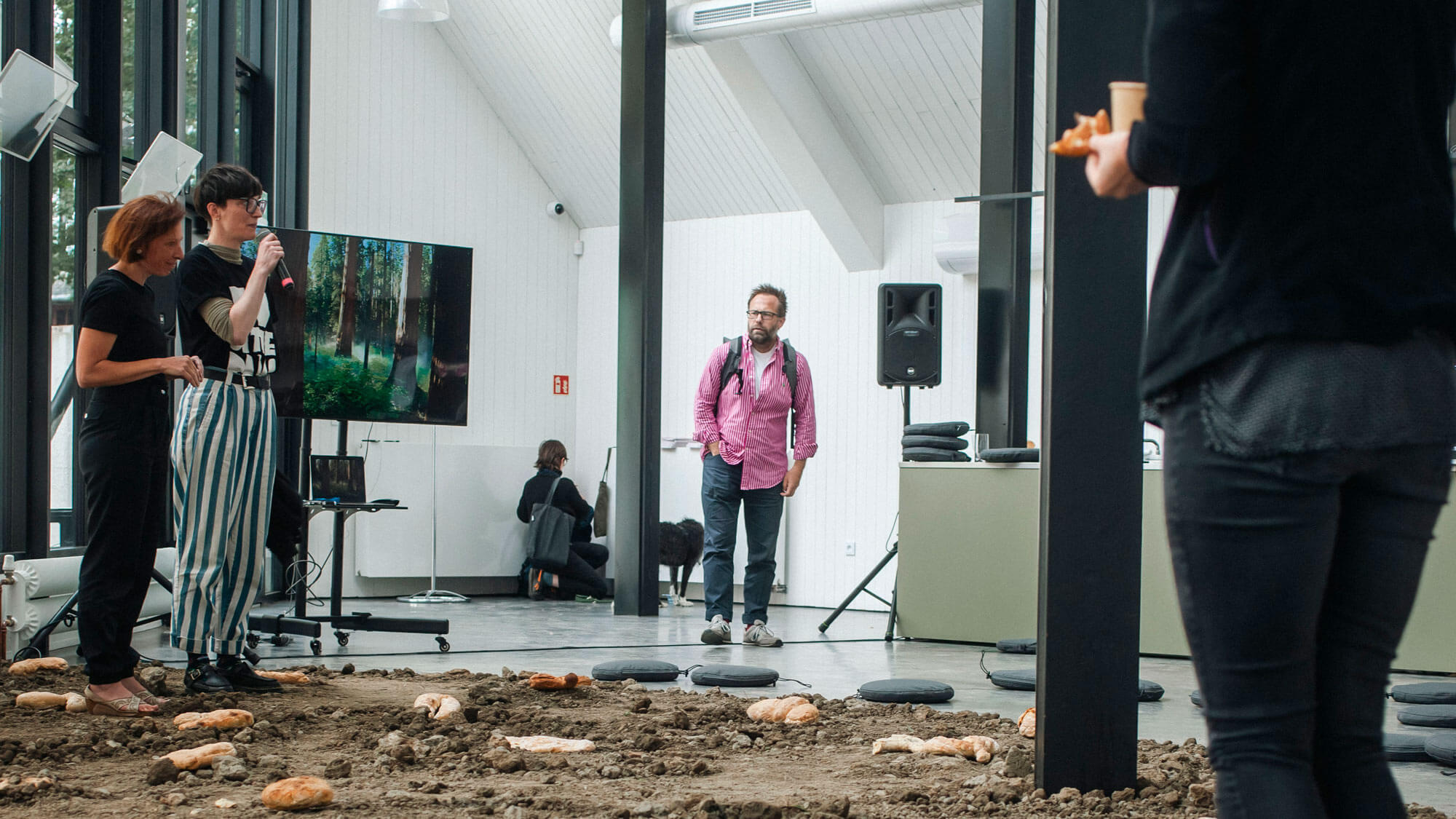As part of the European Capital of Culture’s long-term vision, the Ars Biologica Residency invites artists, scientists, and regional stakeholders to collaborate in investigating pressing environmental questions around climate resilience and sustainable agriculture.
Type: Workshop & Residency
Duration: March 1 – October 30, 2025
City, Country: Budweis, Czech Republic
The team behind the European Cultural Capital Budweis 2028 invited Ars Electronica to become their partner for their Ars Biologica residency program. Artists, designers, and artist collectives will become part of a fully funded program designed to bridge artistic and scientific worlds starting in 2026/27. Here, art and science collaborate to address urgent environmental challenges, with a special focus on climate change, sustainable agriculture, water resource management, and the broader ecological impacts on local communities.
In the 2025 prototype residency a group of experts – consisting of an artist, a scientist, a farmer and a local stakeholder – co-design how the residency can address the needs of the city, the region and most importantly the people and organisms living there. Excitingly we could also win the Biology Center CAS as a scientific partner for this investigation.
The experts were…
… Robertina Sebjanic (artist and expert for art-science collaborations)
… Lenka Marcínová (garden and landscape architect and local stakeholder)
… Anne Daebeler (scientist at Biology Center; Dr Dipl Biol; currently group leader at the Institute of Soil Biology and Biogeochemistry, Head of the Microbes CaN Cycle Lab)
… Magdalena Wutkowska (scientist at Biology Center; MSc and PhD, currently postdoctoral researcher at the Institute of Soil Biology and Biogeochemistry, Microbes CaN Cycle Lab)
… Jakub and Tereza Pešek (farmer and local stakeholder)
The program was facilitated and hosted by Laura Welzenbach (Head of Ars Electronica Export) and managed by Zita Čechová (ECOC 2028 Ars Biologica Project Manager).
The Prototype Residency Journey
In June 2025, after an online kick-off meeting the experts met in Budweis to learn from the city and from each other. Day one started with a tour through the city and the Biology Center and continued with a farm visit, exchange meetings and brainstorming sessions on day two. The goal was two folded. One was developing a hands-on visitor experience for the Ars Biologica Pavilion at Země Živitelka in August, the biggest agriculture fair in the Czech Republic. Second, utilising this experience to advise on decisions for the Ars Biologica Residency framework.
For the Země Živitelka event the Biology Center Mobile Lab became the home for the experience where visitors embark on a sensory journey to uncover the hidden wonders of soil. Through taste, touch, and observation, they discover how this often-overlooked resource shapes our food, environment, and even climate.
Visitors began by tasting fresh vegetables grown in different soils. The difference is striking: carrots from nutrient-rich soil burst with flavor, while those from depleted soil taste flat and dull. This was the starting point for further explorations of new insights like: Soil is alive—just one gram can hold up to 10 billion microorganisms, outnumbering every human on Earth. It’s also a carbon vault, storing more than the atmosphere and all plants combined, shaping our climate’s past and future.
But soil is more than science—it’s culture and power. Throughout history, lost soil meant lost civilizations; erosion didn’t just deplete land, it unraveled societies. Today, the stakes remain high: who controls soil, who pollutes it, and who suffers when it vanishes are questions of justice and survival.
By the end of the experience, one thing became undeniable: soil is far more than dirt. It’s the foundation of our food system, a home for microbes, and a key player in fighting climate change.
The results of the Prototype Residency can be integrated in further educational programs of the Biology Center and beyond. The experience also helped the full team to develop the next details for the Ars Biologica Art meets Science residency which will be published in 2026.
Partner
Budweis 2028 – European Cultural Capital
The guiding theme of Budweis 2028 is (PERMA)CULTURE—a call to cultivate sustainable growth, deep connections, and cultural resilience inspired by natural systems. Drawing from the life cycle of a plant, the artistic concept emphasizes long-term development: projects begin as seeds—local initiatives, participatory activities, and European collaborations—that gradually blossom into impactful artistic outcomes. Set in a rural region, Budweis reimagines the role of culture by bringing permaculture principles into the city, bridging nature, society, and creativity. The programme fosters a living cultural ecosystem, where artists, scientists, and citizens take on the roles of caregivers, connectors, and creators. Here, culture isn’t just entertainment—it’s a force for social renewal, joy, and resilience, designed to outlast the ECOC title and thrive for years to come.
www.budejovice2028.eu
Ars Biologica
Ars Biologica is a flagship project of Budweis ECOC 2028, designed to spark bold collaborations between art, science, and society. Bringing together local communities, cultural organizations, the University of South Bohemia, and the Biology Centre of the Czech Academy of Sciences—as well as national and European partners—the project tackles the local impacts of global climate change, focusing on agriculture, food production, land and water management. This year, the project features three main components: art-science residencies, interdisciplinary summer sessions within an independent study program, and a scientific symposium.
Biology Centre CAS
Biology Centre CAS is the main scientific partner for this investigation. CAS is a Czech public research institution in Budweis founded in 2006 by the Academy of Sciences of the Czech Republic. It brings together five previously separate scientific laboratories and service center providing administrative and technical services. The Biology Centre of the Czech Academy of Sciences performs mainly fundamental and also applied research, and provides education in a number of biological disciplines. Research conducted at the Biology Centre predominantly addresses ecological themes, with a significant emphasis on biomedicine. The research involves collaboration across disciplines, use of diverse methodological approaches (molecular biology, genetics, taxonomy, field ecology, mathematical modelling, etc.), and a combination of analytical and holistic approaches to problem solving.
www.bc.cas.cz
